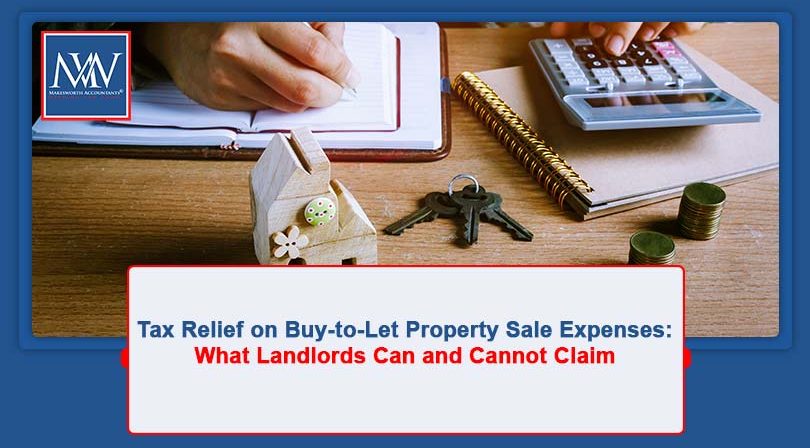
Tax Relief on Buy-to-Let Property Sale Expenses: What Landlords Can and Cannot Claim
Selling a buy-to-let property has become a common choice for many landlords, especially with recent tax changes and the reduced protections introduced under the Renters’ Rights Bill. But in today’s slower buyer’s market, the sale process may take several months — and during this waiting period, landlords often continue to incur various expenses.
Whether these costs qualify for tax relief depends on what they relate to. Understanding the nature of each expense is key to knowing if, and how, tax relief can be claimed.
1. Identifying the Type of Cost
Expenses incurred between the end of the final tenancy and the completion of the property sale can fall into three categories:
-
Costs linked to the previous letting business
-
Costs related to the sale of the property
-
Costs that are private or personal to the landlord, which do not qualify for relief
Correctly identifying which category a cost belongs to helps determine the type of tax relief available.
2. Costs Connected to the Former Letting Business
Tax rules allow certain expenses to be deducted even after the rental business has ended, as long as they would have been allowable had the business continued.
These may include:
-
Heating or utility costs while the property is unoccupied
-
Cleaning and gardening expenses
-
Council tax payable during the empty period
-
Repairs or redecoration to maintain the property
There is also a specific rule allowing tax relief for qualifying expenses incurred within seven years after the rental business has ceased. This covers costs such as:
-
Fixing defective work
-
Recovering a bad debt
Any allowable costs relating to the letting business are deducted when calculating the final rental profit or loss.
3. Costs Incurred for the Purpose of Selling the Property
Some expenses relate directly to the sale rather than the rental activity. These are allowed as deductions when calculating your capital gain or loss on the property.
These include:
-
Estate agent fees
-
Legal fees for solicitors or conveyancers
-
Capital improvement costs made to increase the property’s value before selling
If the property required upgrades to achieve the best selling price, any capital expenditure — such as renovations or improvements — can also be deducted from the final capital gains tax calculation.
Final Thoughts
For landlords exiting the buy-to-let market, understanding which costs qualify for relief can make a noticeable difference to your tax bill. By correctly categorising expenses and applying the right type of tax relief, you ensure you’re not leaving money on the table during the sale process.
For more information, Book a Free Consultation
Need Accountancy Support?
For information on bespoke training, or if you have any other questions for Makesworth Accountant, please fill in your details below
















 151
151